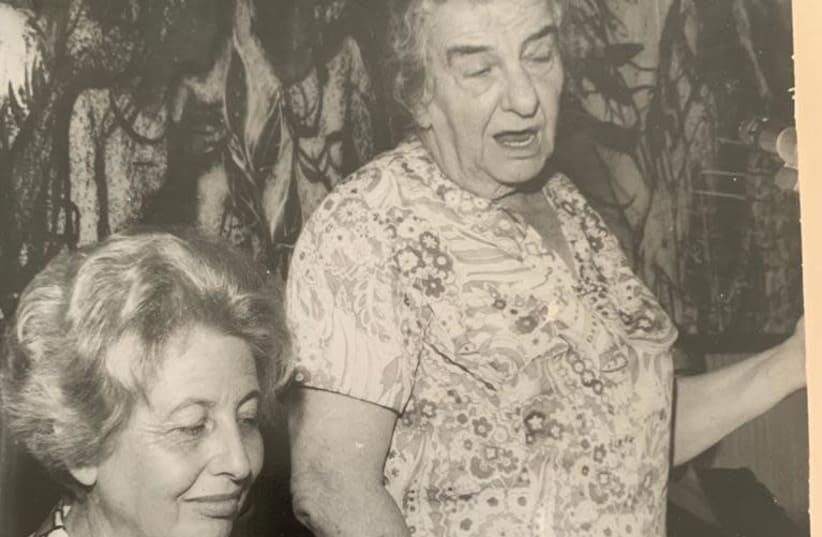Diplomat, politician, social activist and feminist Tamar Eshel came into this world on July 24, 1920, and left it on July 24, 2022 – the day of her 102nd birthday.
Born in London, only by virtue of the fact that her parents were Jewish Agency emissaries there, she came with them to British Mandate Palestine in 1923. Despite growing up in Haifa from a very early age, she retained her British accent when she spoke English, though it was not apparent in her Hebrew. Eshel was an eloquent speaker in both.
Part of the reason for the British accent was that after graduating from the Reali School, she continued her studies at the University of London.
During this period, she was also active as a radio operator in the Haganah.
On her mother's side, she was descended from the Bilu settlers who had come to the Holy Land in 1882.
Her mother, Zilla Feinberg, who was born in Jaffa in 1894, was the older sister of Avshalom Feinberg, one of the leaders of the Nili spy network that aided the British in fighting the Ottoman Empire during the First World War.
Eshel's Russian-born father Ze'ev Shoham, was one of the first lawyers in the country.
Just as her parents' generation had helped the British fight the Turks, Eshel also helped the British in their battle against the Nazis and their cohorts during the Second World War.
British Army
In the British Army, she served first as a driver and later as the supervisor for the establishment of educational libraries in the Middle East.
After the war, she went to Jerusalem, where she was appointed an officer in the political and military intelligence division of the Haganah.
Following the November 1947 UN resolution on the partition of Palestine, she was sent to Europe to purchase arms and work in illegal immigration.
Because she was fluent in Arabic, she was sent to Algeria in 1948 to help organize the mass emigration of Algerian and Moroccan Jews.
Foreign Ministry
In 1950, Eshel joined Israel's fledgling Foreign Ministry, initially working as a researcher and subsequently as bureau chief for the director general.
In 1955, she was sent to New York as a member of Israel's permanent mission to the UN with the rank of ambassador, representing Israel at the UN General Assembly and in other UN bodies.
Her main areas of specialization were human rights and women's rights.
Having served for some time on the UN Committee on the Status of Women, she was elected as its chair in 1961, a personal triumph considering that Israel did not have too many friends in the world at that time, and was subjected to Arab boycotts.
In 1948, she married economist Lionel Schwartz, whom she divorced after six years, and later married diplomat Arie Eshel. They served in New York at the same time – he as Consul General, she at the UN.
When her husband was posted to Brazil as ambassador, Eshel was assigned to oversee technical cooperation between Brazil and Israel.
Arie Eshel died in 1968 while serving as Israel's ambassador to Canada.
His widow returned to Jerusalem where she was the Foreign Ministry's political and religious affairs advisor to legendary Jerusalem Mayor Teddy Kollek.
She was also elected to the Jerusalem City Council and served three terms.
Simultaneously active in other spheres, she served as chair of the Israel Council of Women's Organizations from 1970-73, and represented Israel at numerous international conferences on the status of women, including the UN one in Copenhagen in 1980 and in Nairobi in 1985. At the latter, she had to cope not only with women's issues but with blatant antisemitism.
Naamat women’s organization
From 1974-77, Eshel was secretary-general of the Naamat women’s organization, which was an outgrowth of Pioneer Women. She served as head of both the local organization and the world movement.
Following her experience in local politics, Eshel threw her cap into the national ring and was a Labor Party legislator in the 9th and 10th Knessets, where she gave the bulk of her attention to immigration from Ethiopia and the Soviet Union and the proper absorption of new immigrants.
Because she was a well-versed, intelligent and riveting orator, Eshel was in high demand in Israel and many countries around the globe, traveling extensively in response to the many invitations she received.

